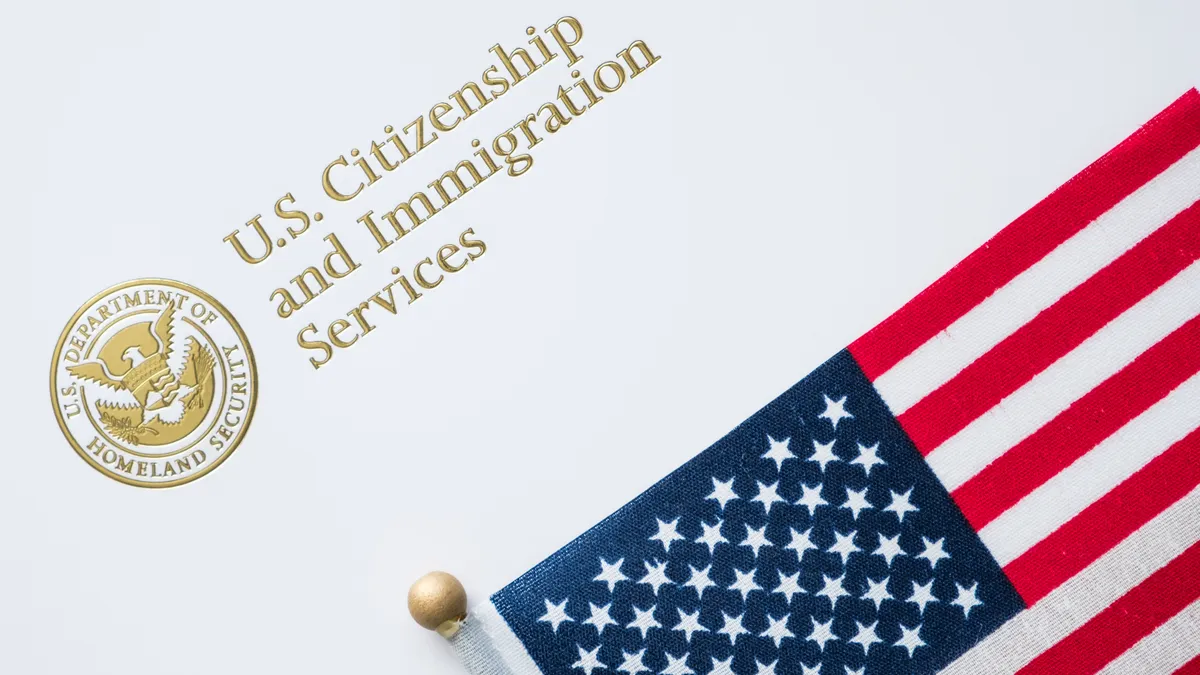Dive Brief:
- U.S. Citizenship and Immigration Services published an updated edition of its Form I-9, the document used to verify employment authorization and employee identity, reversing changes made under the Biden administration, according to an April 2 statement.
- Notably, the new Form I-9 substitutes “alien authorized to work” for “noncitizen authorized to work” in the list of options employees may select in order to attest to their citizenship or immigration status. The Biden administration opted for the “noncitizen” terminology in its 2023 update to Form I-9s as part of a broader push to end use of the word “alien” within federal immigration enforcement agencies.
- Existing Form I-9s dated Aug. 1, 2023, are valid until May 31, 2027, at the latest, depending on the version an employer is using, USCIS said. The new form contains an edition date of Jan. 20, 2025, and an expiration date of May 31, 2027.
Dive Insight:
Though the updated Form I-9 contains a few alterations, it is also notable for what it kept from the previous edition: a box allowing employers to indicate that they have used an “alternative procedure” to examine an employee’s authorization and verification documents.
This could imply that USCIS will continue to support remote I-9 document verification via live video for employers enrolled in E-Verify and in good standing, which the Biden administration announced in 2023.
The Biden administration last extended the expiration date of its updated Form I-9s in August 2024 to the current May 2027 date. The former administration’s decision to substitute "noncitizen" for “alien” in Form I-9s and other documentation stemmed from arguments that “alien” is a dehumanizing term, according to researchers at the University of New Mexico, though the shift was criticized by some Republicans at the time.
I-9 compliance is receiving increased attention from employers and legal counsel as the Trump administration boosts enforcement. Electronic Form I-9 vendor systems may be a vulnerability for employers if such systems are noncompliant with federal regulations, attorneys previously told HR Dive.













